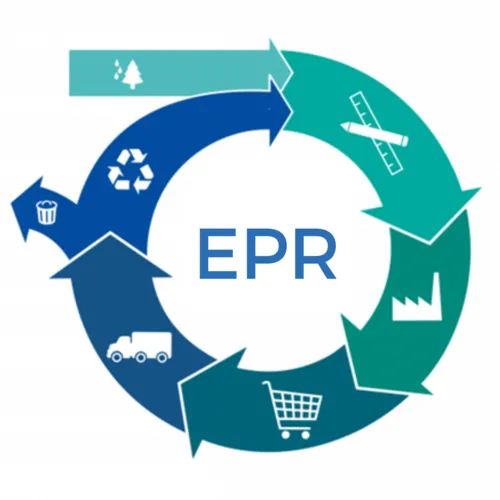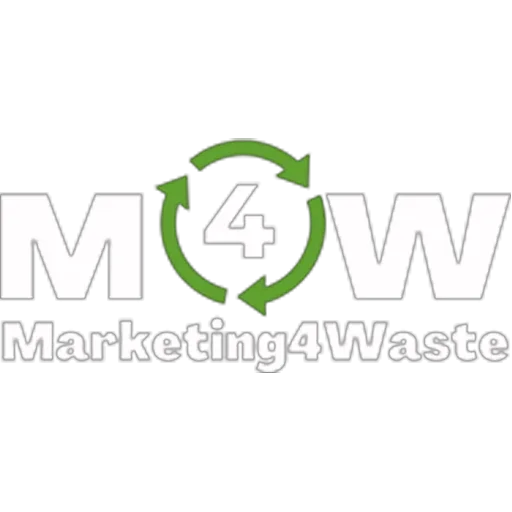Increase the Revenues of Your Waste Company With the Tips Shared in Our Blog Articles

How Waste Companies Can Tap Into New Revenue Streams with EPR: Maximize Profits by Partnering with Producers and Collecting High-Value Materials
As a waste management company owner, your business has a unique opportunity right now.
SWANA’s new guidelines on Extended Producer Responsibility (EPR) have opened a door that few seem to realize can be the key to long-term growth, material collection, and profitability. I'm not talking about adding more trucks to your fleet or expanding into new territories. No, I’m talking about leveraging these guidelines to collect more valuable materials from your commercial clients and, at the same time, creating partnerships with producers who need you to help them meet their EPR obligations.
Let’s be clear. The waste industry isn’t just about picking up trash anymore; it’s about becoming the strategic link between producers and the recycling and resource recovery systems they need to implement.
Why Extended Producer Responsibility is a Game-Changer
Extended Producer Responsibility (EPR) shifts the cost of product end-of-life management from local governments and taxpayers directly to the producers. Essentially, this means manufacturers are now responsible for ensuring their products are properly disposed of or recycled once the consumer is done with them. This is where you come in.
Manufacturers—especially those with complex products like electronics, packaging, and hazardous materials—are under increasing pressure to comply with these new regulations. But here’s the kicker: most of them have no idea how to do it efficiently. They know how to make and sell products, but when it comes to taking responsibility for collecting, sorting, and recycling these materials? That’s where they need someone with experience—you.
By positioning your waste management company as a solutions provider, you become more than just a hauler—you become a vital partner in helping producers meet their legal and operational obligations.
Collecting More Valuable Materials
SWANA’s guidelines push producers to ensure their products are collected and recycled, but these products don’t just show up at recycling facilities. The key to unlocking the value of these materials lies in your relationships with your commercial clients.
Take this opportunity to implement or refine material-specific collection services. Instead of simply handling general waste for your clients, start conversations about managing their recyclable or recoverable materials with an EPR-focused approach. This could include:
- Electronics waste (e-waste)
- Packaging materials like plastic, glass, or metal
- Hazardous or hard-to-recycle materials like batteries and paints
By offering specialized collection services targeted at these materials, you're not only providing a premium service to your clients—you’re also gathering materials that producers are now required to recover under EPR.
Remember, producers are mandated to recycle these materials, but they’re often willing to pay for someone else to handle it. You can be the one capitalizing on this demand.
Building Long-Term Partnerships with Producers
Let me give you a practical example: @TerraCycle
TerraCycle has become a giant in the waste industry by creating systems that allow producers to take responsibility for their products. TerraCycle partners with brands and manufacturers to establish recycling programs for products that typically aren't recycled. In essence, they became the middleman—the facilitator between the producer and the waste management companies that process and handle the materials.
Now, there’s no reason your company can’t replicate this model on a local or regional scale. TerraCycle’s business isn’t magic; it’s built on partnerships and innovative thinking, something you already have the capability to do.
You already have the trucks, the routes, and the relationships with commercial clients. Why not go to the next step by forming partnerships with producers in your area who are struggling to comply with EPR regulations? Pitch them a service where you become their go-to provider for collecting and recycling their products after consumer use. By positioning yourself as the local TerraCycle, you create a new revenue stream based not on volume but on strategic, high-value partnerships.
The producers need you. They’re being mandated to collect and recycle their products, but most don’t have the infrastructure to do it themselves. By offering them a tested, proven solution, you not only build long-term, profitable relationships, but you also lock them into service contracts that make your business essential.
Giving the Government What They Want
Here’s where SWANA’s guidelines get interesting. SWANA encourages collaboration between governments and waste management companies to create efficient systems. Here’s what most people won’t tell you: governments don’t have the time, resources, or expertise to develop these systems from scratch. What they’re really looking for is for the private sector—that’s you—to come to the table with solutions that are already crafted and tested.
When you form long-term partnerships with producers to handle their EPR obligations, you’re not just helping those companies—you’re creating a blueprint for how EPR can be managed across an entire industry or geographic area. Governments want this. They want waste management companies to come to them with solutions they can scale, instead of reinventing the wheel themselves.
You can become the company that provides this solution, setting the standard for how EPR should work in your region. When local governments see how your system works—how it efficiently collects, sorts, and processes materials—you position your company as the go-to partner when new EPR initiatives are rolled out.
By being proactive, you not only collect more valuable materials from your clients, but you also elevate your company’s reputation and build relationships with both producers and regulators. These are the kinds of relationships that keep your trucks rolling and your business thriving.
The Bottom Line: Profit Through EPR
Ultimately, EPR is an opportunity. It’s a way for waste management companies to move beyond just collecting waste and into a new realm of business—one where you’re collecting high-value materials, forming partnerships with producers, and offering governments the solutions they desperately need.
But to make this shift, you need to act now. Start conversations with your commercial clients about the kinds of materials they’re producing and disposing of. Approach producers and offer them tailored collection and recycling services. And most importantly, show local governments that you’re already ahead of the curve by offering scalable solutions for EPR.
The waste management industry is evolving. SWANA’s guidelines on EPR aren’t just a regulatory burden—they’re a road map for how you can build a more profitable, resilient business.
If you need help figuring out how to approach these opportunities or want to learn how to craft your own EPR-focused services, reach out. Together, we can turn this challenge into your next big success.
To Your Success,
Sam Barrili
The Waste Management Alchemist


© 2024 Marketing4waste - All Rights Reserved,
Marketing4Waste is a brand of MiM MarketingInterimManagers LLC
+1 801 804 5730

